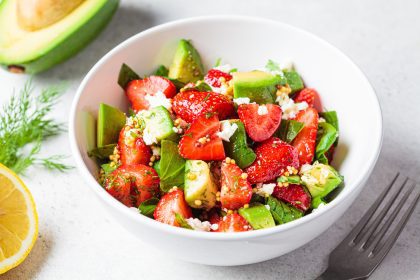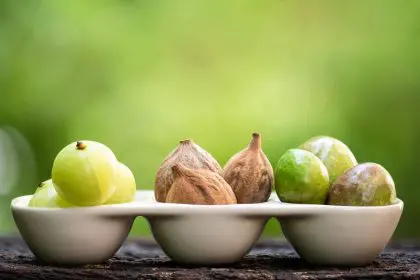That mouth-puckering sensation might make you wince, but bitter foods deserve a special place on your plate. While your taste buds might protest at first, your liver is secretly cheering you on. Those bitter greens and spices that make you scrunch your face actually pack a powerful punch against liver problems.
Let’s face it – in a world dominated by sweet and salty flavors, bitter foods often get left behind like the last kid picked for dodgeball. But these underappreciated taste warriors might just be what your body needs most, especially when it comes to keeping your liver in fighting shape.
Why your liver deserves your attention
Your liver is basically the unsung hero of your body – working tirelessly behind the scenes without much recognition. This mighty organ filters everything you eat and drink, detoxifies harmful substances, produces essential proteins, and stores vital nutrients. It’s like having a personal bouncer, chemist, and warehouse manager all rolled into one.
When your liver struggles, everything suffers. From fatigue and digestive issues to more serious conditions like fatty liver disease, the consequences can be far-reaching. The good news? Your daily food choices can make a huge difference in keeping this vital organ happy.
The bitter truth about bitter foods
Bitter foods contain compounds called bitter principles – natural chemicals that give them their distinctive taste. These include glucosinolates in cruciferous vegetables, flavonoids in citrus peels, and sesquiterpene lactones in dandelion and chicory.
But these aren’t just random plant chemicals – they’re powerful biological signals. When your taste buds detect bitterness, they send messages throughout your digestive system to prepare for action. Your body increases digestive enzyme production, bile flow, and detoxification processes – all crucial for liver health.
How bitter foods support your liver
The relationship between bitter foods and liver health goes deeper than you might think. When you eat something bitter, your body’s reaction kickstarts a cascade of liver-friendly processes.
First, bitter foods stimulate bile production. Bile helps break down fats and carries away toxins, reducing the workload on your liver. It’s like hiring a cleanup crew so your liver doesn’t have to do all the heavy lifting itself.
Next, many bitter foods contain compounds that activate detoxification pathways in the liver. These pathways help process and eliminate potentially harmful substances that enter your body through food, air, or skin. Think of it as upgrading your liver’s filtration system.
Finally, bitter foods often come packed with antioxidants that protect liver cells from damage caused by free radicals. This protection is crucial since the liver is constantly exposed to toxins during its filtering work.
The bitter food lineup your liver will love
Ready to give your liver some bitter love? Here are some stars of the bitter food world that deserve a spot in your kitchen:
Dark leafy greens – Arugula, dandelion greens, mustard greens, and kale aren’t just trendy – they’re packed with compounds that support liver detoxification pathways. A handful in your morning smoothie or sautéed as a side dish can make a real difference.
Cruciferous vegetables – Broccoli, Brussels sprouts, and cabbage might make your kitchen smell funny, but they’re worth it. They contain glucosinolates that help your liver produce detoxifying enzymes. Roasting them brings out natural sweetness that balances their bitter edge.
Coffee and tea – Your morning cup of joe isn’t just waking up your brain – it’s giving your liver a boost too. Coffee contains compounds that may help protect against fatty liver disease. Green tea offers similar benefits with a gentler caffeine kick.
Citrus pith and peel – The white stuff under your orange peel that you usually throw away? It contains flavonoids that can help reduce inflammation in the liver. Try zesting citrus over dishes or using whole sections in smoothies.
Bitter herbs and spices – Turmeric, ginger, and dandelion root have been used for centuries to support liver health. Whether in teas, soups, or supplements, these bitter botanicals pack a powerful punch.
The bitter challenges: making the unpalatable delicious
Let’s be honest – bitter foods are an acquired taste for many of us. Years of consuming processed foods high in sugar and salt have dulled our appreciation for bitterness. But that doesn’t mean you can’t learn to love them.
Start by introducing bitter foods gradually. Add a small handful of arugula to your regular salad greens. Try roasting Brussels sprouts with a bit of maple syrup to balance the bitterness. Blend a few bitter greens into a fruit smoothie where sweeter flavors can take the edge off.
Pairing bitter foods with complementary flavors is another winning strategy. A squeeze of lemon brightens bitter greens, while a drizzle of good olive oil adds richness that balances the bitterness. Fresh herbs like basil or mint can also help bridge the flavor gap.
Remember that cooking techniques matter too. Blanching greens briefly can reduce their bitter edge, while roasting brings out natural sweetness in vegetables like Brussels sprouts and broccoli.
Beyond bitter: a holistic approach to liver health
While bitter foods are powerful allies for your liver, they work best as part of a broader liver-friendly lifestyle. Staying hydrated helps your liver flush toxins more effectively. Limiting alcohol gives your liver a break from one of its most demanding detoxification tasks.
Regular exercise also supports liver health by helping maintain a healthy weight. Since fatty liver disease is often linked to excess weight, staying active complements your bitter food intake perfectly.
Getting enough sleep matters too. Your liver performs much of its detoxification work while you’re sleeping, so those eight hours aren’t just good for your energy levels – they’re crucial for liver rejuvenation.
Starting your bitter journey today
You don’t need to overhaul your entire diet overnight. Begin with one bitter food addition this week. Maybe it’s swapping your regular lettuce for arugula or adding a small piece of fresh ginger to your tea.
Pay attention to how you feel as you incorporate more bitter foods. Many people report improved digestion, more stable energy levels, and clearer skin – all signs that your liver is functioning better.
Remember that consistency matters more than perfection. Even small, regular additions of bitter foods can support your liver health over time. Your taste buds will gradually adapt, and you might find yourself actually craving these once-avoided flavors.
The path to better liver health might be bitter, but the results are undeniably sweet. Your liver works tirelessly for you every day – showing it some bitter love is the least you can do in return.

















